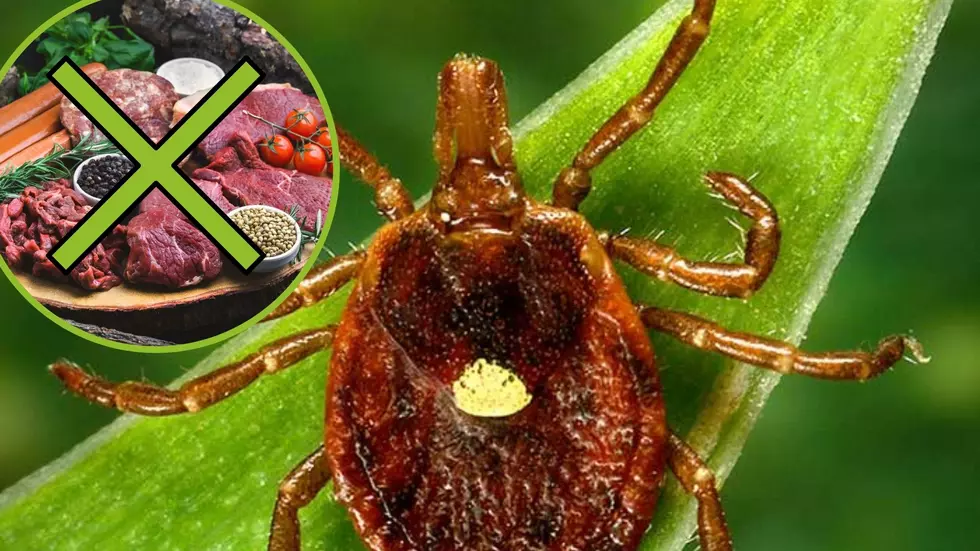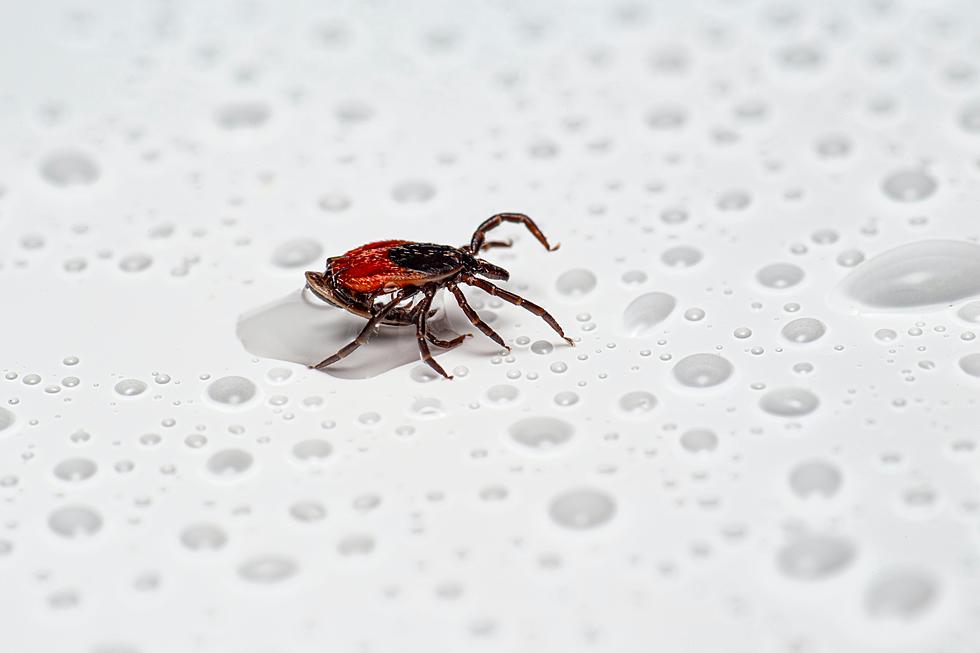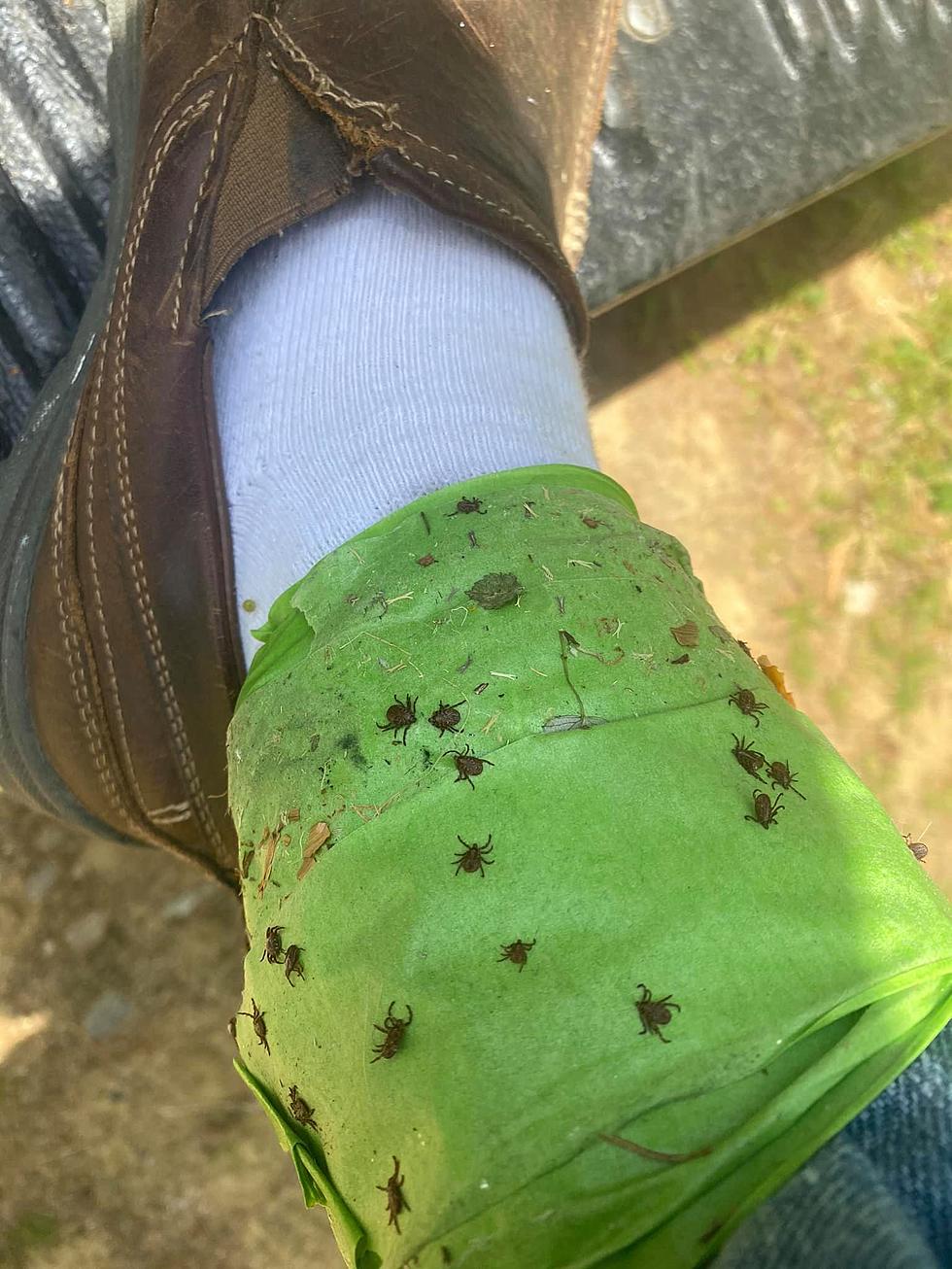
Check Youself And Your Pets For Ticks
Ticks are still very active this time of year in CNY, and we need to be vigilant about checking for them on ourselves and our pets to protect against tick-borne illnesses.
Deer ticks live in shady, moist areas at ground level. They cling to tall grass, brush and shrubs, usually no more than 18-24 inches off the ground. They also live in lawns and gardens, especially at the edges of woods and around old stone walls.
Once a tick gets on your skin, it climbs upward until it reaches a protected area. In my husband's case, it was on his side. Thankfully he felt something but couldn't see it. At first glance, I didn't think it was anything, but then I saw it move and he started bleeding. After being incredibly grossed out, I followed the directions on removing a tick.
1. I cleaned my tweezers with alcohol.
2. The tick was entirely embedded in Doug's side so unfortunately, I had to dig around. You're supposed to pull it straight up and out but It wasn't that easy as this tick was buried. I did get 'most' of it.
3. I then put alcohol on his side.
While out running errands he said he could still feel it. So when we got home, I found the magnifying glass and picked the rest of it out with tweezers. For the next 30 days I'll be keeping an eye out for the following:
- Rash
- Headache
- Fatigue
- Muscle aches
- Fever/Chills
I've also circled the date on our calendar, so I know exactly when he was bitten. I probably wouldn't remember 20 or 30 days out.
We have a new puppy, Lexie Lulu McMullen. She had a huge tick right next to her eye. She's not old enough for any flea and tick medicine. We did get the tick out, and now we're putting Neosporin on the affected area and made an appointment with our veterinarian.
A case of Powassan virus, a tick-borne illness, has been confirmed in Dutchess County as well as three cases in Saratoga County from this past summer. Powassan virus is a rare viral disease that can cause symptoms ranging from mild flu-like symptoms to life-threatening encephalitis (inflammation of the brain).
If you're spending time outdoors you need to protect yourself and take precautions:
- Wear light-colored clothing with a tight weave to spot ticks easily, as well as enclosed shoes, long pants, and a long-sleeved shirt. Tuck pant legs into socks or boots and shirt into pants.
- Check clothes and any exposed skin frequently for ticks while outdoors.
- Consider using insect repellent.
- Stay on cleared, well-traveled trails. Walk in the center of trails. Avoid dense woods and brushy areas.
- Bathe or shower as soon as possible after going indoors (preferably within two hours) to wash off and more easily find ticks that may be on you.
- Do a final, full-body tick check at the end of the day (also check children and pets), and remove ticks promptly.
For more information about Powassan virus, Lyme disease, and other tick-borne illnesses, visit https://www.health.ny.gov/tickfree.
Bonus Video:
More From 96.1 The Eagle









